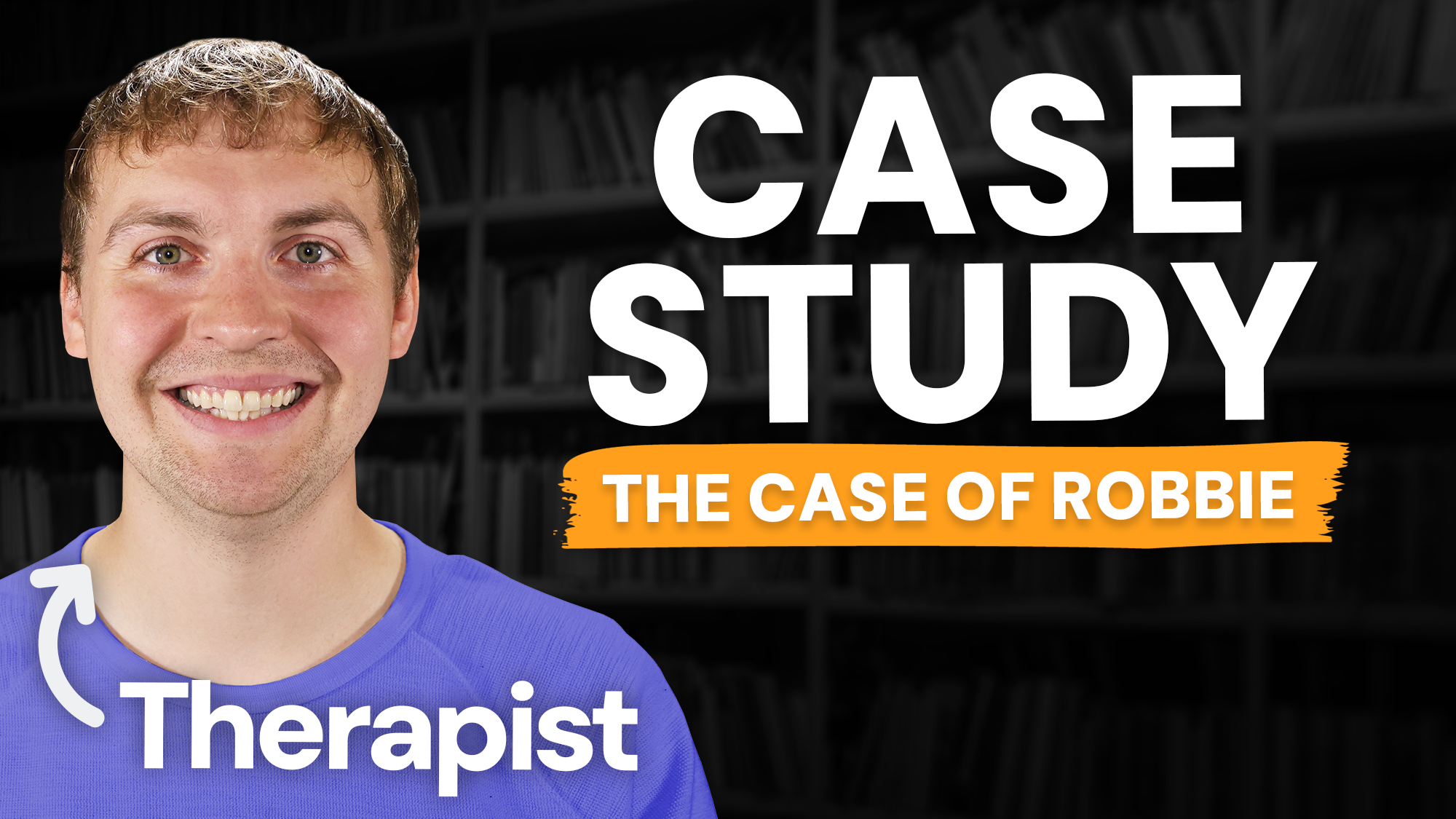
Test your diagnostic skills with this video. We’ll review the details of the case of Eleanor before you determine what you think the diagnosis will be. At the end, we’ll review the diagnosis for Eleanor and discuss how each criteria does or does not apply in her case.
This is the case of Ms. Eleanor Vance. She is a 38-year-old woman, and someone you have seen in therapy for nearly a year. She originally presented to therapy expressing significant distress after a recent breakup.
As you’ve worked with Eleanor, you learn that she has a history of unstable relationships. She has discussed with you how she is aware that she often moves quickly from one partner to another. Eleanor explains that when she is not in a relationship, she will feel empty. She often discusses how being single comes with a sense of desperation to find her next partner, and that it feels impossible for her to ignore this feeling. In fact, she will often describe it as all-consuming.
Throughout your sessions with Eleanor, when you encourage her to share more about herself, she tends to focus more on how others might be looking down on her. You notice that when you highlight her accomplishments or strengths, she is quick to minimize these. Almost always, she will explain that what people think are accomplishments of hers are really just because she had the help of others. In a recent session, Eleanor said that she isn’t good at things on her own, and that it is very difficult for her to work without the help of others.
A pattern that has appeared throughout her sessions is how she will go to great lengths to avoid disapproval. When you have asked about this, Eleanor admits that she has always been this way. She describes her need for reassurance and how she habitually seeks the approval of others.
Another pattern in Eleanor’s life is frequent job changes. She struggles to find work that is satisfying for her. She has a strong desire to work in a position that is closely supervised, and that does not require her to work on her own. Eleanor shares that if a supervisor or coworker tells her what to do and how to do it, that is ideal.
In past jobs, it is consistently noted to her that, when she works independently, her work performance does not meet expectations as her productivity is far below what would be expected. Eleanor recognizes this, and says that it is extremely difficult for her to work alone, and that she often feels overwhelmed in these situations. She says that her feelings of anxiety when working by herself cause her to struggle with completing her work in a timely fashion, and says she feels like she is always second-guessing her decisions. Eleanor has also said that she avoids starting projects on her own as she doesn’t feel like she knows what she is doing, and worries that others will question why she has started the project or how she is working on it.
Outside of work, Eleanor also struggles with decision making. She says she is afraid that she might be incapable of making decisions. From what she has described, she easily goes along with what others say, and it seems as though she actually prefers this. Eleanor says that it is best when others will make decisions for her. You’ve asked her to share times where she has disagreed about a decision, and Eleanor says that she has difficulty with ever actually saying she disagrees. Even when she feels strongly about something, she almost never expresses her opinion out of fear that others will abandon her.
Early in her treatment, she confided that she struggles with deciding seemingly minor things, such as what to eat or wear. Her partner was the one that often made these decisions for her as they noticed how difficult these things were. The end of this relationship is what originally brought Eleanor to treatment. They had been in a relationship for two years, and Eleanor found relief in having someone to help with decision making. Now that the relationship has ended, she describes feeling “unable to function” because of the anxiety she feels being alone. She is often exasperated and overwhelmed by feelings of being “completely lost” without her partner, especially when trying to make decisions.
In your sessions with Eleanor, she often seems fixated on the idea of needing to have a partner to take care of her. She often reports intense anxiety about being on her own.
Eleanor’s presentation to sessions is almost always anxious. She is typically tearful and tends to avoid eye contact. Her tone of voice is often soft. Eleanor’s affect tends to be constricted, and her mood is consistently dysphoric. You notice that she tends to seek reassurance from you. When you do provide reassurance or validation, she often verbalizes her appreciation for this, but it does not seem as though it actually satisfies her need for reassurance or validation in these situations. Her thought process is logical in nature. The content of her thoughts though are almost always overwhelmingly related to her belief of being inadequate, and of her fears of abandonment. Eleanor denies suicidal or homicidal ideation.
Based on what is reported, a diagnosis of Dependent Personality Disorder would be appropriate for Eleanor. The Diagnostic and Statistical Manual of Mental Disorders (DSM-5-TR) says that Dependent Personality Disorder is “a pervasive and excessive need to be taken care of that leads to submissive and clinging behavior and fears of separation” (APA, 2022, p. 769).
There are eight criteria for Dependent Personality Disorder, and five are needed for the diagnosis. Let’s quickly review these to see which Eleanor would meet.
Criteria 1: First, the person needs to have difficulty with everyday decisions, and will need excessive advice and reassurance in the decision-making process. Eleanor appears to meet this criteria.
Criteria 2: Second, they tend to need someone else to take responsibility for major areas of their life. For Eleanor, it seems that this is the case with how she describes the amount to which she relied on her former partner to make decisions, and with her need for the help of supervisors or co-workers when she is at work.
Criteria 3: Third, they struggle with expressing disagreement out of fear that they will lose the support or approval of others. Eleanor seems to meet this criteria based on how passive she can be, even when she strongly disagrees with something.
Criteria 4: Fourth, because of a lack of self-confidence or feelings of being incapable, they have difficulty starting projects or doing things on their own. With Eleanor, from what we hear in this case, she would meet this criteria.
Criteria 5: Fifth, they will go to great lengths to get nurturance or support from others. They may even volunteer to do things that are unpleasant for this. Eleanor does not appear to meet this criteria. With more information, we may find that she does. However, using the information we have, we only hear her doing this with relationships, which are addressed coming up.
Criteria 6: Criteria six is that the person will feel uncomfortable, or even helpless, when alone. They will struggle with exaggerated fears that they are unable to care for themselves. Again, this is a criteria that Eleanor seems to meet as she describes feeling incapable of caring for herself when she is not in a relationship.
Criteria 7: Seventh, when a close relationship ends, they will urgently seek another relationship for the support and care of that person. Eleanor meets this criteria from what she has told us. This better explains what we see in criteria five as Eleanor seems to go out of her way for a new relationship. If we saw this behavior more clearly in other areas also, then I think she would meet criteria five as well.
Criteria 8: Finally, criteria eight is that the client has unrealistic fears that tend to preoccupy their mind related to being abandoned and having to take care of themselves. This is a criteria that Eleanor again meets due to her preoccupation related to these.
Of the eight criteria, Eleanor meets seven, which is more than the five needed for the diagnosis of Dependent Personality Disorder. Since these symptoms have been happening for most or all of her adult life, that supports this diagnosis.
Note: This case study is fictional. This case presentation is for entertainment and educational purposes. Any resemblance that this case has to a real situation is purely coincidental.



If you or someone you know are needing immediate mental health assistance, please call or text 988, contact a local emergency telephone number, or go to the nearest emergency room.
By interacting with this website and channel, this does not constitute a therapist/client relationship. This content is intended for the purposes of entertainment and mental health education.
View additional disclaimers and notices on our Disclaimers page.